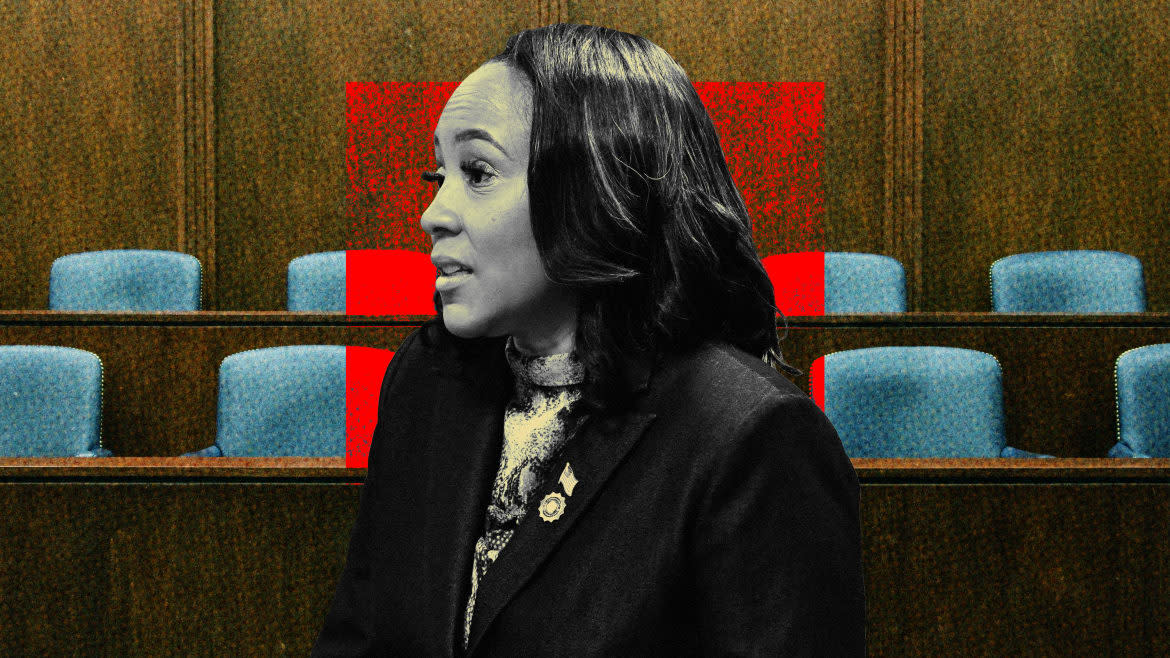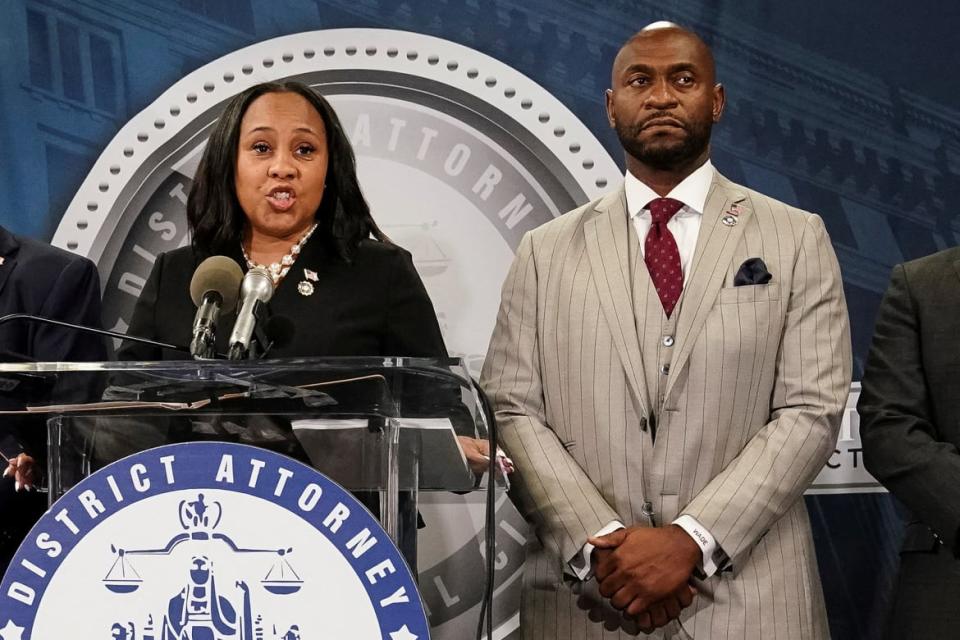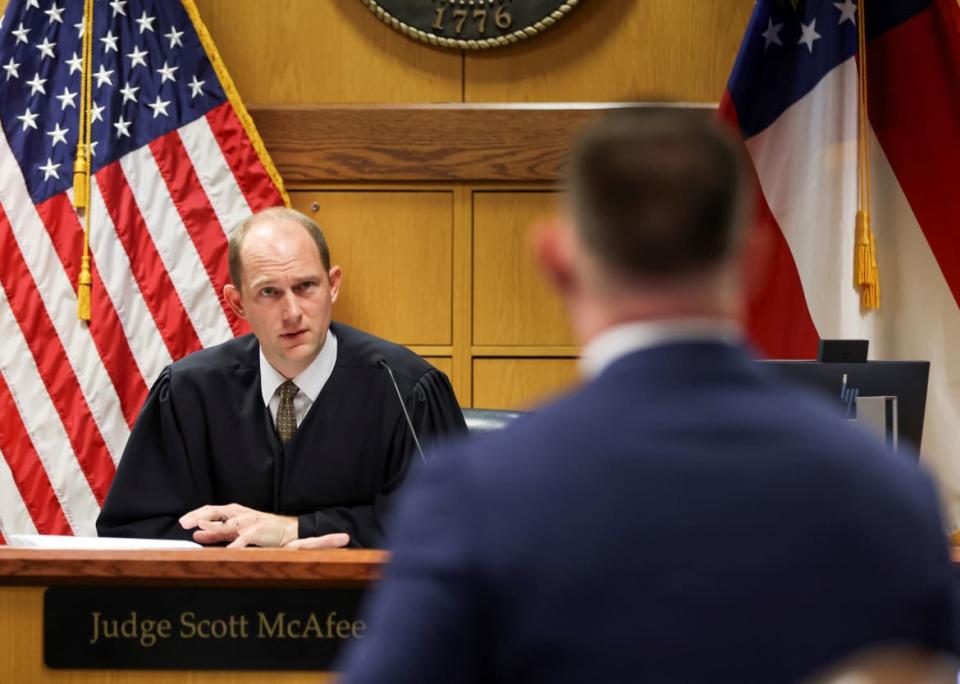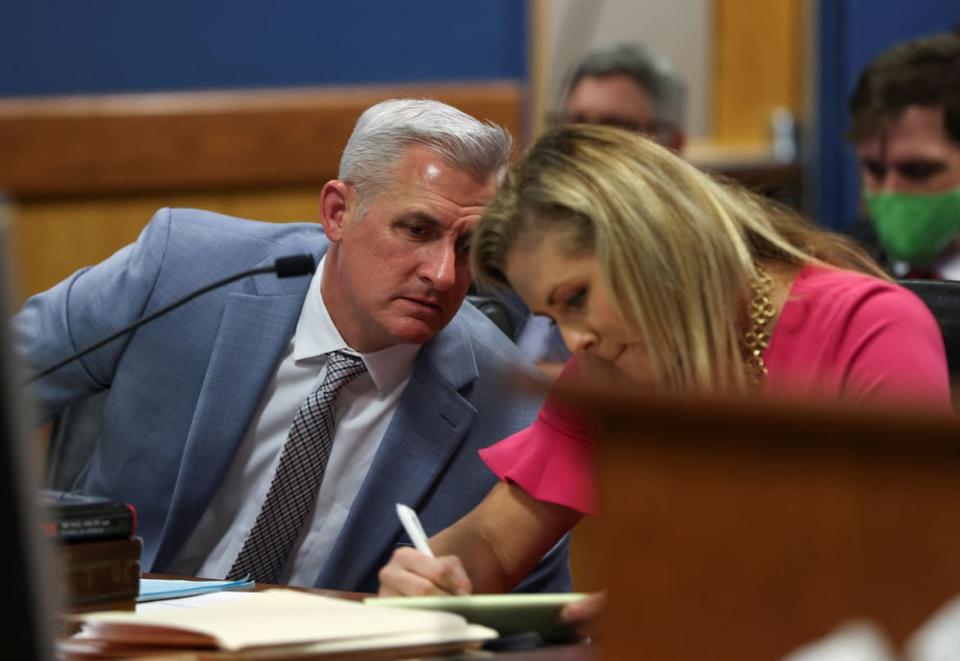The Case for Disqualifying Fani Willis Makes No Sense

- Oops!Something went wrong.Please try again later.
- Oops!Something went wrong.Please try again later.
- Oops!Something went wrong.Please try again later.
On the day after Valentine’s Day, the judge presiding over the Georgia election interference case against former President Donald Trump and 18 of his co-defendants will hold an evidentiary hearing to help determine whether Fulton County District Attorney Fani Willis (and her entire office) will be disqualified due to her romantic life allegedly creating a conflict of interest.
While it’s understandable that Judge Scott McAfee wants an evidentiary hearing to ensure he has all the facts before him prior to ruling, the hearing is unlikely to yield any enlightening evidence—because the premise of the motion is so deeply flawed.
Trump co-defendant Michael Roman—who oversaw a Koch brothers network research unit before working as a Trump campaign aide and in the Trump White House—seeks to disqualify Willis on the theory that her romantic relationship with a special prosecutor she hired, Nathan Wade, creates a conflict of interest for her in prosecuting the case.
Why We Can’t Just Shrug Off the Fani Willis Scandal
Much media focus has breathlessly characterized the judge’s decision to hold a hearing as a signal the judge is leaning towards disqualification. That’s wrong. Let’s start with the fact that McAfee set clear limits about what the hearing is about.
First, despite the salacious focus of Roman’s legal team, the hearing is not about Willis’ romantic relationship with Nathan Wade. Given that Willis submitted pleadings in which the existence of a personal relationship that developed after Wade was hired, Judge McAfee rightly said the existence of a personal relationship is not at issue—and the only relevance of that relationship is the question of whether it creates an actual conflict of interest or the appearance of one.

Fulton County District Attorney Fani Willis speaks at a press conference next to prosecutor Nathan Wade after a Grand Jury brought back indictments against former president Donald Trump and his allies in their attempt to overturn the state's 2020 election results, in Atlanta, Georgia, on Aug. 14, 2023.
Under Georgia law (and according to common sense), however, it will be a stretch to make that connection.
Georgia law says that lawyers who are married to each other cannot be disqualified, even if they are on opposing sides of a case. As one Georgia court put it: “[w]hile we cannot disagree with the proposition that the marital relationship may be the most intimate relationship of a person’s life, it does not follow that professional people allow this intimacy to interfere with professional obligations.”
Willis and Wade are on the same side of the case, so the possibility of conflict is even less than if they were adversaries in the case.
Roman’s legal team wants to get out from under this problem by claiming that the relationship between Willis and Wade creates a conflict of interest—not because of any romantic interest—but because Wade supposedly paid for trips or other possible “date”-related expenses. The theory being that these benefits somehow create a financial interest for Willis in the prosecution, since Wade is paid for his work on an hourly basis.

Judge Scott McAfee listens to Fulton County prosecutor Will Wooten, in the case of State of Georgia v. Donald John Trump at the Fulton County Courthouse in Atlanta, Georgia, on Feb. 13, 2024.
It’s important to know that it would be disqualifying if Willis (or Wade) had a financial stake in the outcome of the case. For example, in two cases, Georgia courts found that a special prosecutor had a conflict of interest when their pay was in the form of a contingency fee tied to whether they won a conviction or not. But neither Willis nor Wade is on a contingency fee—they get paid by the hour—so how much they get paid has nothing to do with whether they win the case.
Don’t Take the Wrong Message From Tom Suozzi’s Win in New York
To counter this, Roman’s attorney argues that the financial interest in the case is due to the fact Wade gets paid by the hour, Fani Willis has an interest in dragging out the case. But dragging out a case is not the same as having an interest in whether you win or lose.
Not only is Roman’s argument legally off-base, it’s also stunningly tone-deaf. His own lawyers, Ashleigh Merchant and Jonathan Merchant, are married to each other and—presumably being paid for their work on Roman’s case on an hourly or flat fee basis. Under this logic, any lawyer being paid for work on a case has a financial stake in the case that could result in disqualification. In other words, all paid lawyers must be disqualified.
Judge McAfee also made it clear that the hearing is not about Wade’s qualifications.

John Merchant, attorney for Michael Roman, looks at his wife Ashleigh Merchant, who also represents Roman, as she writes during a hearing in the case of State of Georgia v. Donald John Trump at the Fulton County Courthouse in Atlanta, Georgia on Feb. 12, 2024.
A lot of unjustified criticism has been directed at Wade for his supposed lack of qualifications, but McAfee correctly has taken this issue off the table by saying “as long as a lawyer has a heartbeat and bar card” then the appointment was up to Willis’ discretion.”
But the biggest problem for Roman’s legal team is likely to be their star witness, Terrence Bradley, who is Wade’s former law partner and once represented him in Wade’s divorce case. Roman’s husband and wife legal team claim Bradley will testify about people that work in Willis’ office who know about the romantic relationship—including whether it began before or after Wade was hired. But this promised testimony presents several problems.
The first is an ethical problem. As Wade’s former divorce lawyer, it is easy to imagine that Bradley would have attorney-client privileged information about Wade’s romantic life that he is not allowed to share. Indeed, another lawyer— Gabe Banks, who turned down the special prosecutor job—told Judge McAfee that he had called Bradley (who is a friend and fraternity brother to Banks) about the possibility of Bradley testifying about Wade and “was concerned Bradley…might be ‘emotional’ and violating attorney-client privilege.”
Calm Down, the Allegations Against Fani Willis Won’t Put Trump’s Georgia Prosecution at Risk
Assuming the attorney-client privilege bar is somehow overcome by Roman’s lawyers, the next problem they have is that all of Bradley’s testimony is likely to be inadmissible hearsay. Unless Judge McAfee is not following the usual rules of evidence, Bradley is simply prohibited from getting on the stand and talking about what he heard from other people. All lawyers learn that as a matter of basic evidence.
But the biggest problem for Bradley’s testimony is that unless Roman’s lawyers plan to qualify him as a couples counselor, Bradley lacks any expertise to testify about when the relationship between Willis and Wade turned romantic.
Judge McAfee has thus far run a disciplined courtroom and this hearing is likely to quickly and decisively end Roman’s efforts to disqualify Fani Willis. That is, unless Roman’s attorneys succeed at turning the hearing into an episode of Divorce Court.
Get the Daily Beast's biggest scoops and scandals delivered right to your inbox. Sign up now.
Stay informed and gain unlimited access to the Daily Beast's unmatched reporting. Subscribe now.

